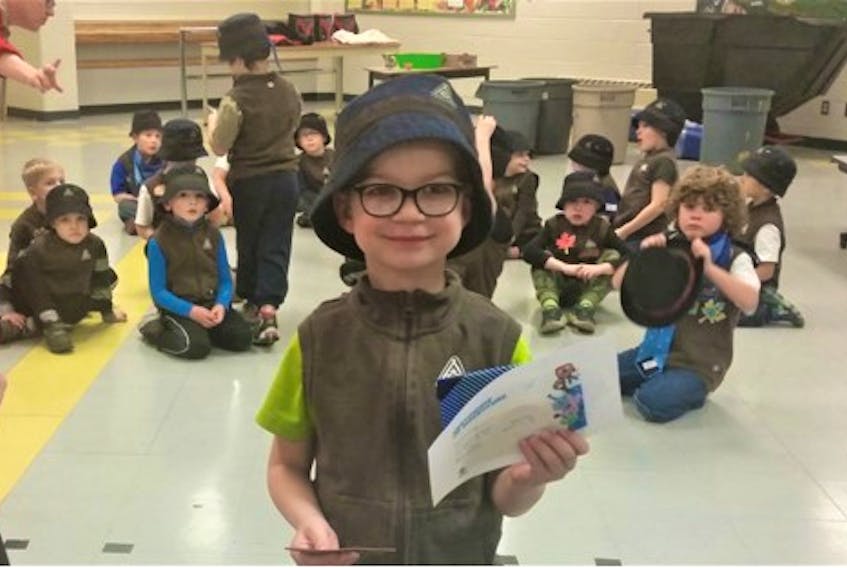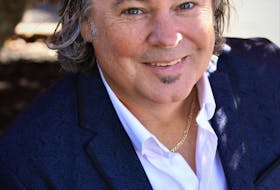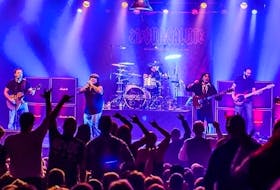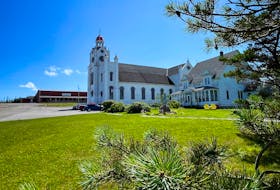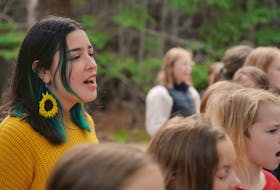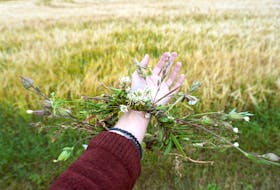When Daughter #1 was a little girl she told us that we wear poppies on Remembrance Day “to remember all the poppies who died on the wharf.”
I doubt if she knew what war was in those days when wars around the world weren’t common, everyday fare on the television news.

My five-year-old grandson will turn six four days after Remembrance Day. He’s excited about his Beaver troop taking part in the parade and he knows that it is for “all the soldiers who died and didn’t come back.”
I think his generation understands as much as they do about Remembrance Day because as a society our generation is revering it more for the very fact that war has become common, everyday fare on the television news.
In a strange dichotomy the reality of wars in today’s world is making us ever more aware of and sadder about the obscene waste of life in wars past which in the end did not bring peace in our time or our children’s or grandchildren’s time.
In our world village we have come to accept that there will always be war somewhere. There isn’t a world war, “just” smaller wars in countries far away from us but every time we see the horrors of war safely distant from our shores we must be reminded of why we still enjoy the freedoms that we have here at home.
Living today in a world of Nazis is beyond imagination but it might have been. They weren’t easy to stop. To save us from the unimaginable, men and women from all walks of life gave everything they had.
In Korea, Rwanda, Bosnia, Afghanistan and other war-torn places Canadian soldiers have continued in the quest for peace, have died and have been damaged.
Around Remembrance Day I think a lot about the damaged ones, particularly the emotionally damaged ones.
I wonder about how good a job we as a country are doing to support our veterans. We hear more about the plight of American veterans than we do our own and maybe we assume that Canada does a much better job of showing its thanks to veterans.
I’d be shocked if we don’t, but I do believe that we show our veterans less appreciation than we show our dead, especially veterans who show no obvious signs of injury.
PTSD — post-traumatic stress disorder — was first classified as a disorder some 40 years ago. The Mayo Clinic defines it as a mental health condition that’s triggered by either experiencing or witnessing a terrifying event. Symptoms can include flashbacks, nightmares and severe anxiety, as well as uncontrollable thoughts about the event and are grouped into four types: intrusive memories, avoidance, negative changes in thinking and mood, and changes in physical and emotional reactions.
Intrusive memories; flashbacks, unwanted distressing memories, nightmares and severe emotional or physical reaction to reminders of the event, are the easiest for us to understand.
Avoidance is well supported by how often we hear “he never really talked about the war” lending even to the sentiment that anyone who talked a lot about the war probably wasn’t even there.
Negative changes in thinking and mood are more complex; negative thoughts about yourself, other people or the world, hopelessness about the future, memory problems, difficulty maintaining close relationships, feeling detached from family and friends, lack of interest in things you once enjoyed, difficulty experiencing positive emotions and feeling emotionally numb.
Changes in physical and emotional reactions are the most visible but not necessarily understood.
Symptoms include being easily startled or frightened, always being on guard for danger, self-destructive behaviour, such as drinking too much, drug use or driving too fast, trouble sleeping, trouble concentrating, irritability, angry outbursts, aggressive behaviour and overwhelming guilt or shame.
If I could have chosen between my depression and breast cancer I would have chosen the cancer. I’ve no doubt that many PTSD sufferers would rather have lost an arm,
Think compassionately on Remembrance Day, lest we forget that we have wounded veterans walking among us, looking perfectly healthy.
I’m sure Lt.-Col. John McCrae wouldn’t mind me paraphrasing a few lines of his poem…
If we break faith with those who live,
The dead shall not sleep, though poppies grow
In Flanders fields.
Janice Wells lives in St. John’s. She can be reached at [email protected]. (or [email protected].)
RELATED:

